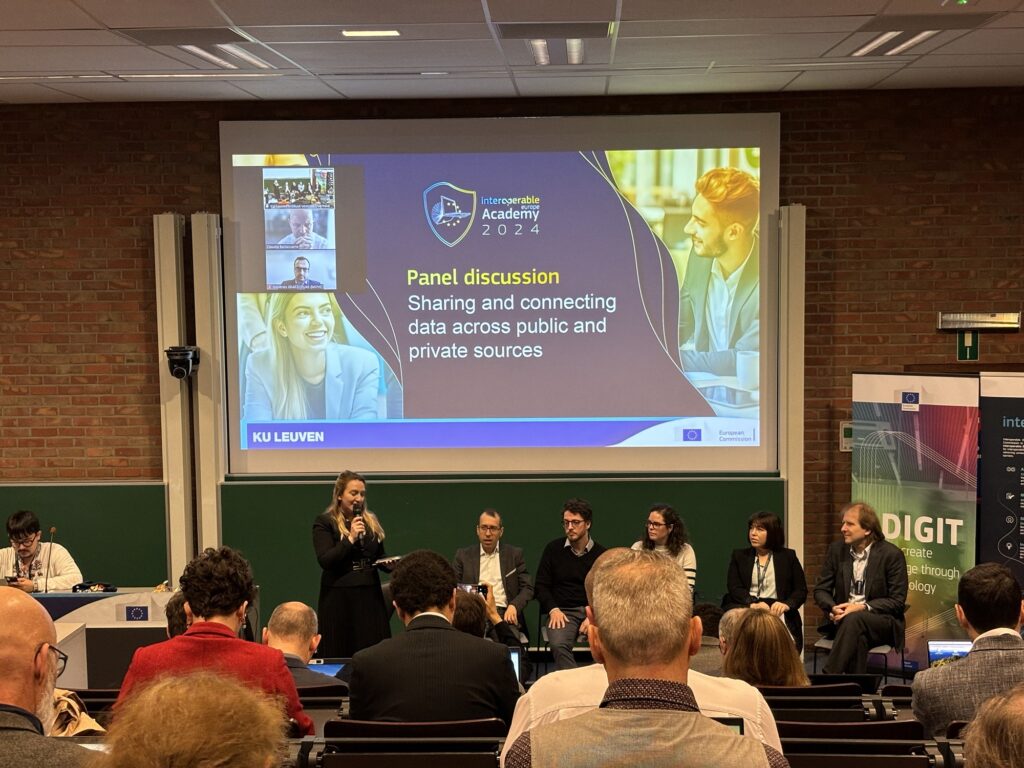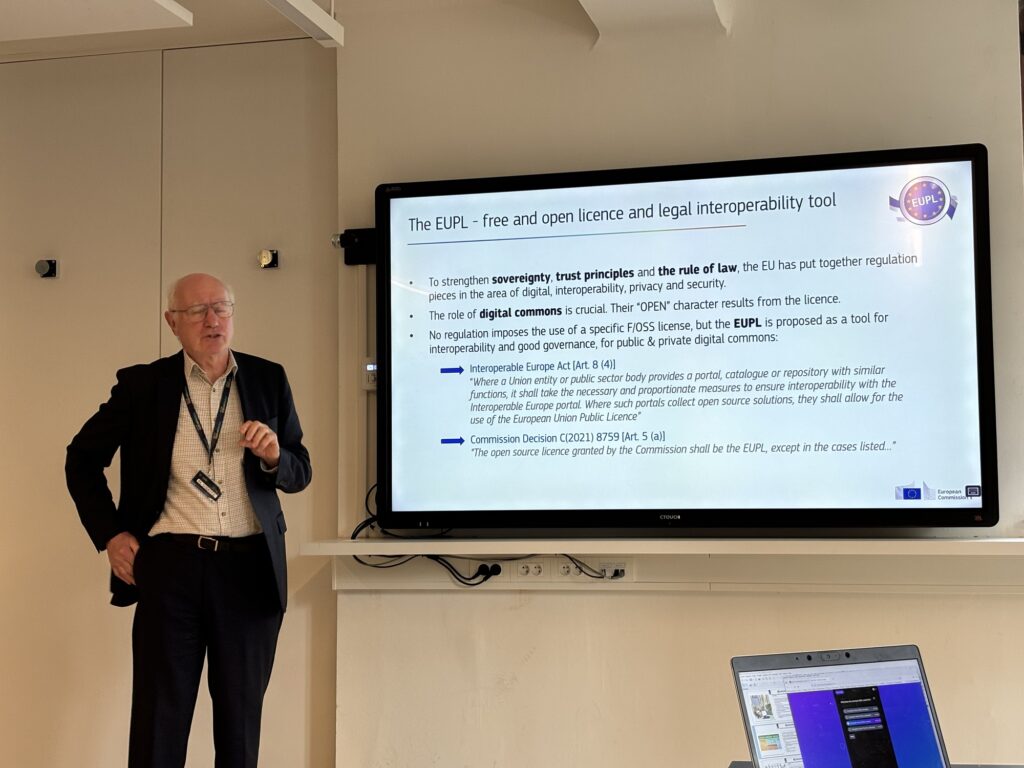
ESRs 13 (Héctor) and 15 (Ashraf) attended the Interoperable Europe Academy 2024 on April 11 and 12 at KU Leuven, Belgium. More than 200 attendees, including from academia, business, and public sectors, were involved in discussing interoperable and digitally ready policymaking in Europe. There was a mixture of panel discussions with experts and parallel workshops with a more interactive approach. One of the main points discussed was the Interoperable Europe Act, the new legislation put in place by the EU to guide the implementation of cross-border interoperable public services.
The event was insightful in understanding how the EU and member countries plan and implement interoperable public services digitalization, both on the governance and technical levels. We learned from meeting and talking with people working directly on the ground and were inspired to get more involved in the future governance of digital public services.
From the event, we reflect on several insights and relate their application to the open data ecosystem. While there were suggestions to add more layers to the existing four layers (legal, organisational, semantic, and technical) of the European Interoperability Framework (EIF), some participants raised concerns about them. Additional layers may result in more complexity for organisations in member states to adopt the EIF when substantial progress remains in the four layers. Applying this insight to researching and designing the open data ecosystem, we should also consider if the recommendations we provide may complicate things in practice and defeat their intended goals.

The event also underscored the need for user engagement and demonstrating use cases. Both are important to gaining public support for interoperability initiatives. As in the case of the open data ecosystem, digital initiatives require political and social buy-in. Hence, the tangible and visible value of such initiatives has to be clear and relatable to the masses. In simple words, people should come first before technology.
Related to the previous insight, the funding and financial model were also discussed during the event. The value of interoperability initiatives (such as cross-boundary identity management) is more apparent at the European level than at the local member state level. This, at times, raises the question of who should fund what. For national or local policymakers, they need to be convinced that the value of interoperability initiatives is worth paying for. Likewise, local citizens need to be convinced that their tax money is worth spending on those initiatives. Over time, organizations that implement interoperability initiatives also need to devise a sustainable funding model to support the maintenance and development costs in the long run.
Last but not least, some participants also raised the need to account for the development of artificial intelligence (AI) and more sophisticated cybersecurity threats in the development of interoperable systems. The more interoperable systems are, the higher the potential risks and/or severity of cyber attacks. Applying this insight to open data, not only should the potential benefits of AI to the open data ecosystem be explored, but the potential risks also deserve considerable attention.
Authors:




